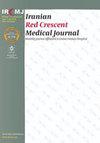围手术期护理对微创颅内血肿清除术脑出血患者脑脊液生化指标的影响
IF 0.2
4区 医学
引用次数: 0
摘要
背景:脑出血是指脑实质内原发性非外伤性血管破裂引起的出血性疾病。它是老年人常见的急性脑血管疾病。研究目的观察围手术期护理对脑出血患者微创颅内血肿清除手术的影响。方法:本随机对照试验研究针对 2022 年 1 月至 12 月期间在吉林大学第一医院接受微创颅内血肿(MIRIH)治疗的 106 例患者。这些患者被随机分为两组,即对照组和观察组(各53人)。观察组除常规护理外,还接受围手术期护理。组间差异采用t检验和卡方检验进行比较。结果第一天,各组间的基线特征无显著差异。但在入院第 7 天和第 14 天,观察组与对照组相比,钾离子增加,氯离子、乳酸脱氢酶、微量白蛋白和美国国立卫生研究院卒中量表(NIHSS)评分下降(P<0.05)。与对照组相比,观察组的术后并发症(包括肺炎、下肢静脉血栓和脑疝)发生率也较低(P<0.05)。观察组第 7 天和第 14 天的 NIHSS 评分明显低于对照组(第 7 天:9.60±4.11 vs 12.02±2.83,P<0.05;第 14 天:6.77±3.47 vs 9.19±2.86,P<0.05)。结论围手术期护理可改善电解质/代谢水平,促进神经系统恢复,减少 MIRIH 手术后并发症。本文章由计算机程序翻译,如有差异,请以英文原文为准。
Perioperative Nursing Influence on Cerebrospinal Fluid Biochemical Markers in Cerebral Hemorrhage Patients Undergoing Minimally Invasive Intracranial Hematoma Removal Surgery
Background: Cerebral hemorrhage refers to a hemorrhagic disease caused by primary non-traumatic rupture of blood vessels in the brain parenchyma. It is a common acute cerebrovascular disease in the elderly. Objectives: To observe the effect of perioperative nursing on minimally invasive intracranial hematoma removal surgery in patients with cerebral hemorrhage. Methods: This randomized controlled trial study was conducted on 106 patients undergoing treatment for minimally invasive internal hematoma (MIRIH) at the First Hospital of Jilin University, Jilin, China, between January and December 2022. These patients were randomly divided into two groups, namely the control and observation groups (n=53 each). The observation group received perioperative care in addition to routine care. Differences between groups were compared using t-tests and Chi-square tests. Results: On the first day, there were no significant differences in the baseline characteristics between the groups. However, on the 7th and 14th days of admission, the observation group showed an increase in potassium ions and a decrease in chloride ions, lactate dehydrogenase, trace microalbumin, and the National Institutes of Health Stroke Scale (NIHSS) scores, compared to the control group (P<0.05). The observation group also had a lower incidence of postoperative complications, including pneumonia, lower limb vein thrombosis, and cerebral hernia, compared to the control group (P<0.05). NIHSS scores on days 7 and 14 were significantly lower in the observation group than in the control group (day 7: 9.60±4.11 vs 12.02±2.83, P<0.05; day 14: 6.77±3.47 vs 9.19±2.86, P<0.05). Conclusion: Perioperative nursing leads to improvement in electrolyte/metabolic levels, neurological recovery, and reduction in post-MIRIH surgical complications.
求助全文
通过发布文献求助,成功后即可免费获取论文全文。
去求助
来源期刊

Iranian Red Crescent Medical Journal
医学-医学:内科
自引率
0.00%
发文量
0
期刊介绍:
The IRANIAN RED CRESCENT MEDICAL JOURNAL is an international, English language, peer-reviewed journal dealing with general Medicine and Surgery, Disaster Medicine and Health Policy. It is an official Journal of the Iranian Hospital Dubai and is published monthly. The Iranian Red Crescent Medical Journal aims at publishing the high quality materials, both clinical and scientific, on all aspects of Medicine and Surgery
 求助内容:
求助内容: 应助结果提醒方式:
应助结果提醒方式:


